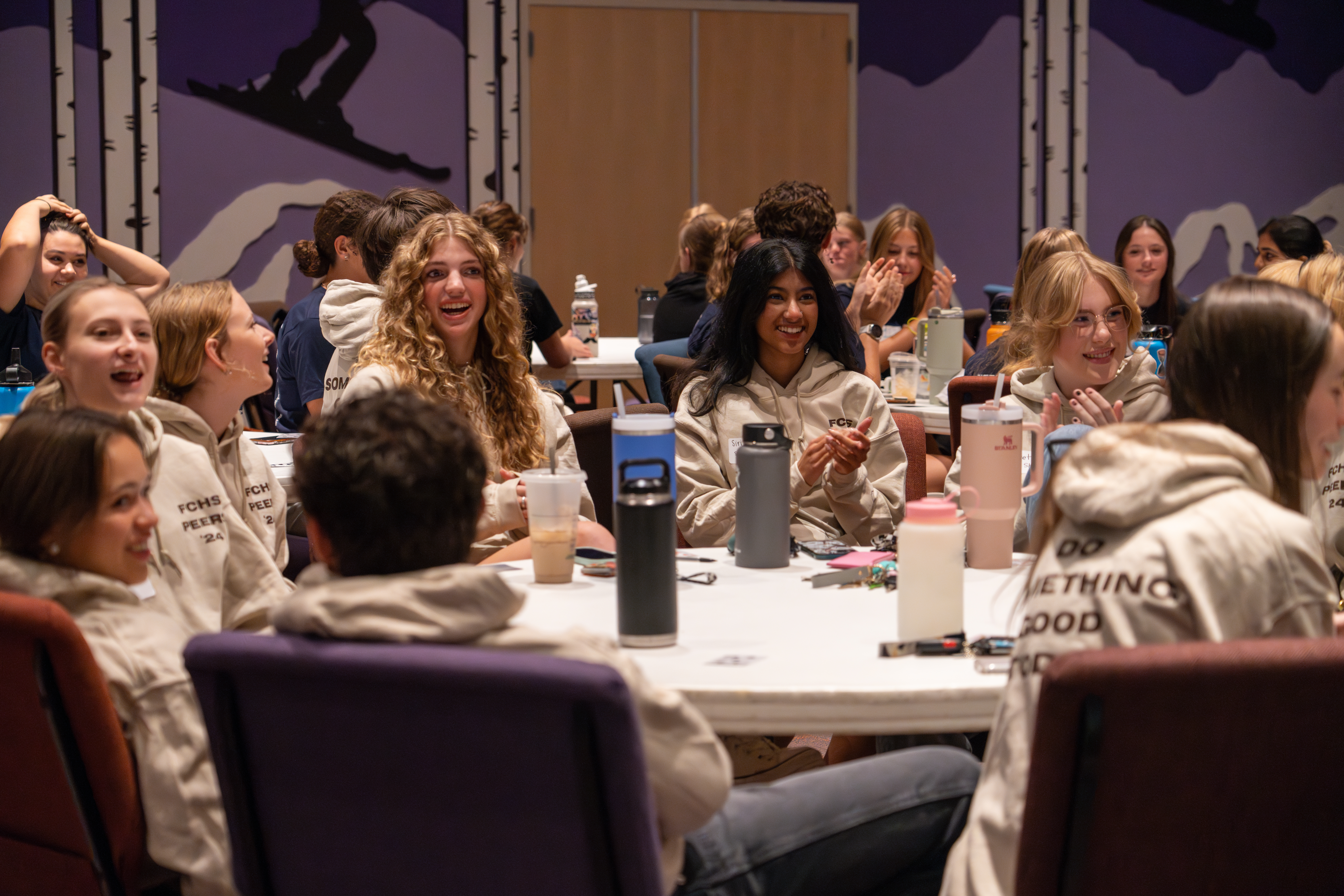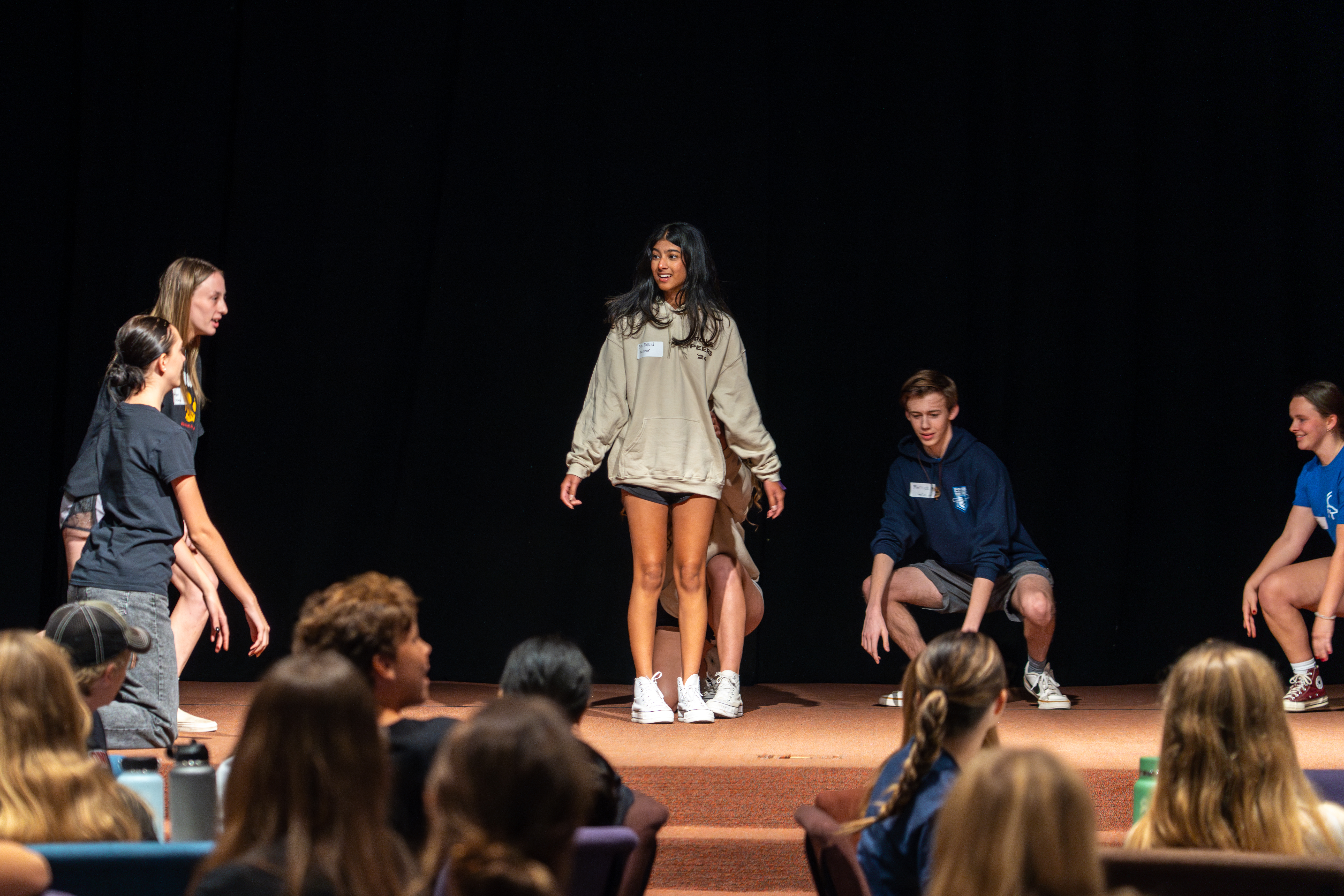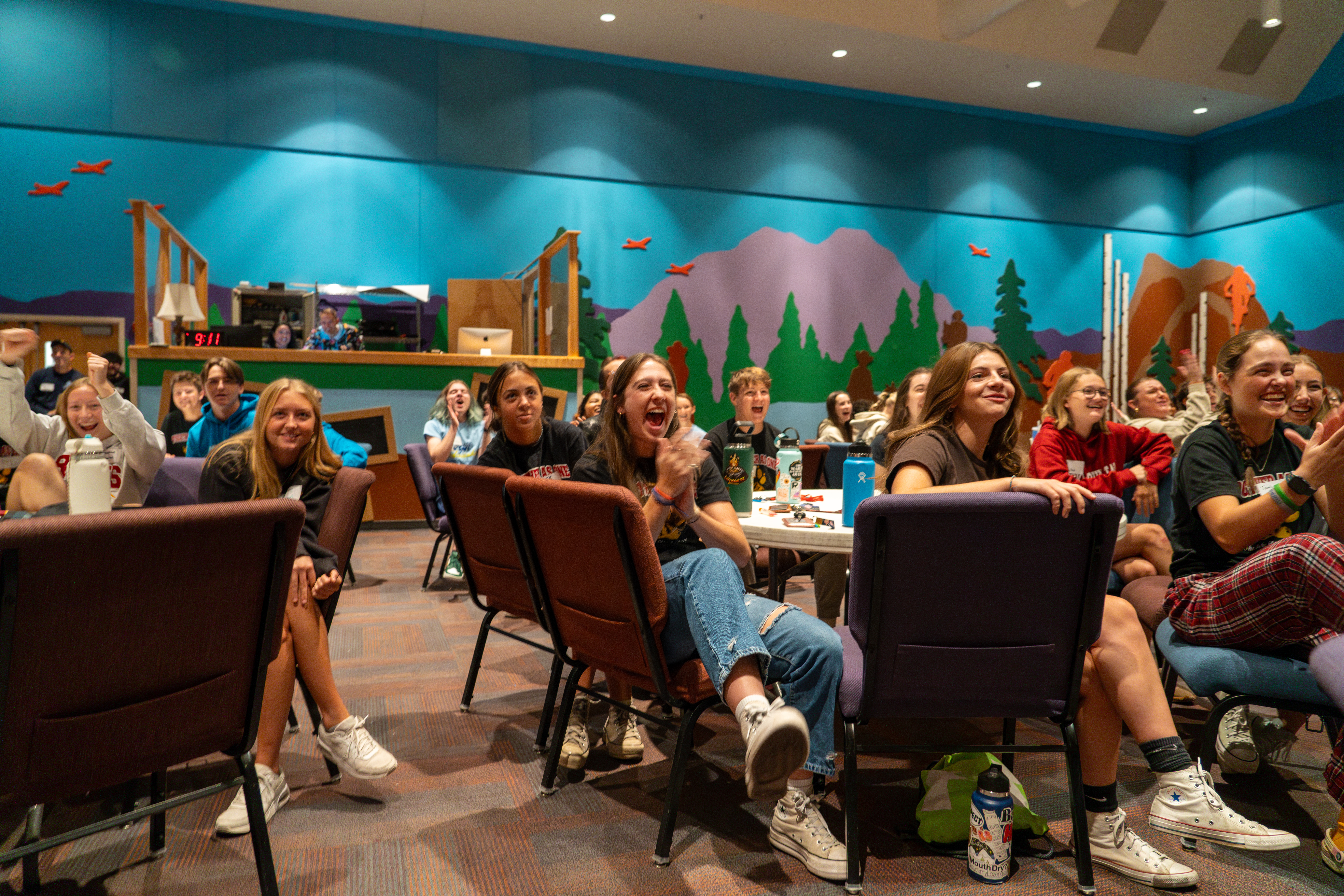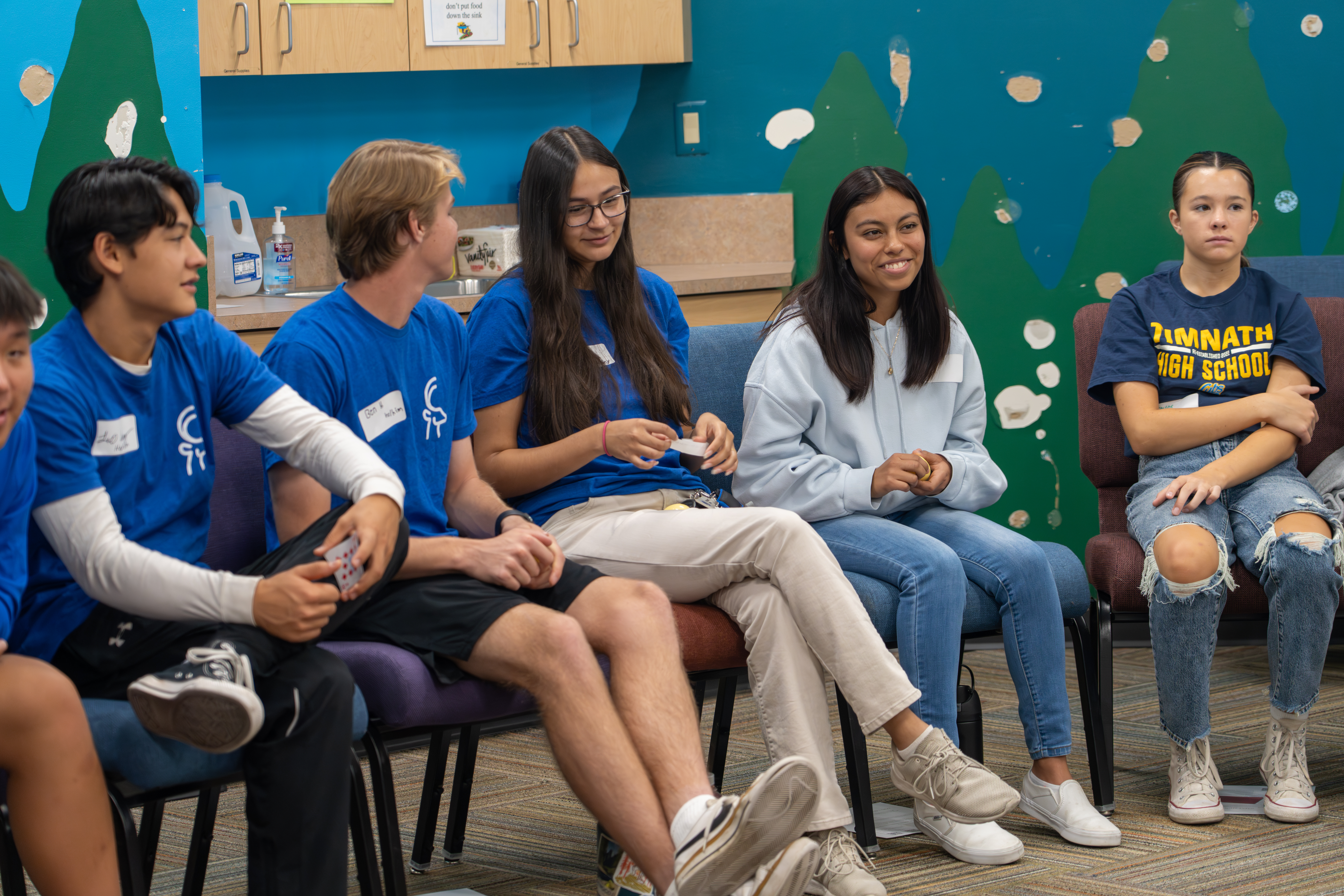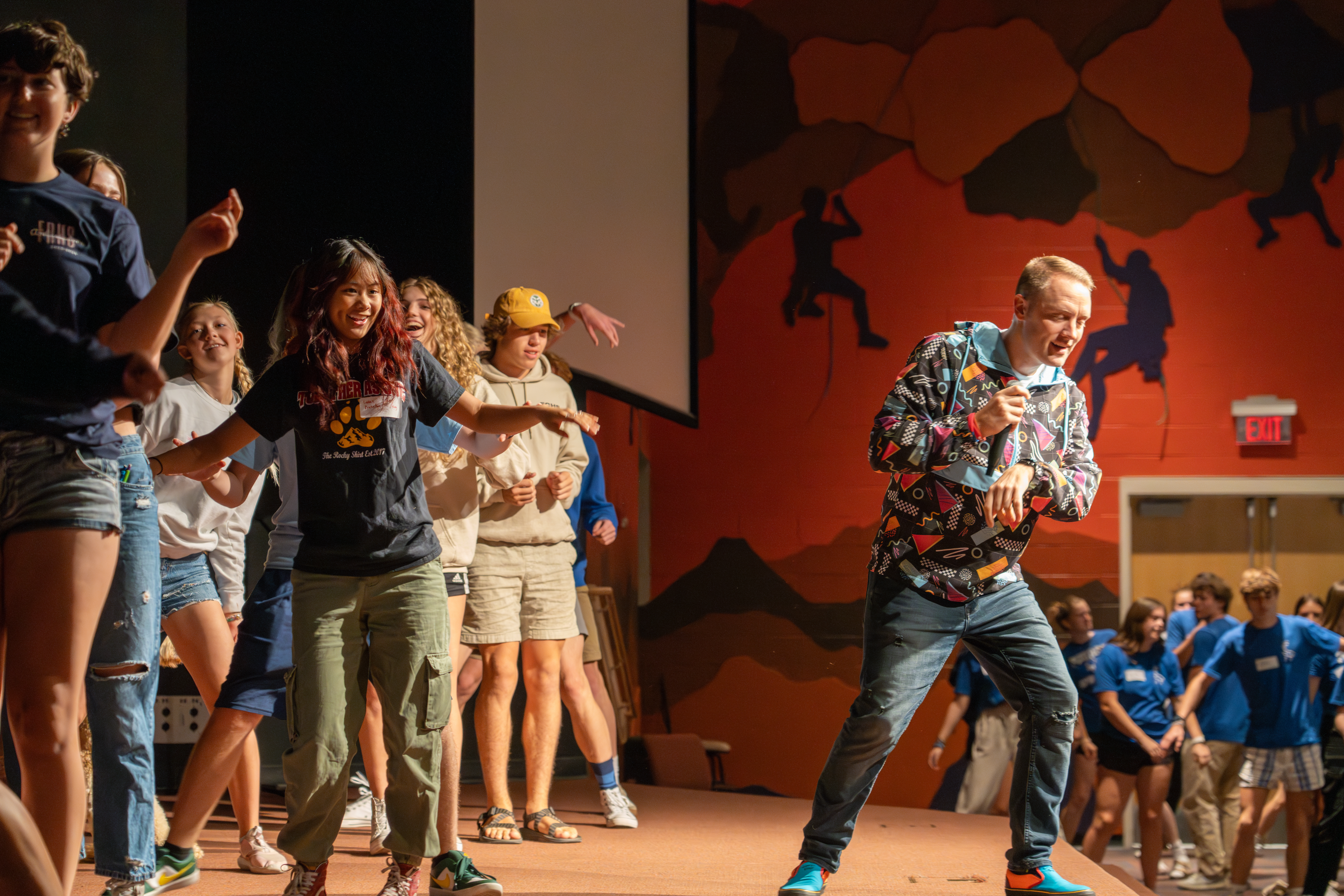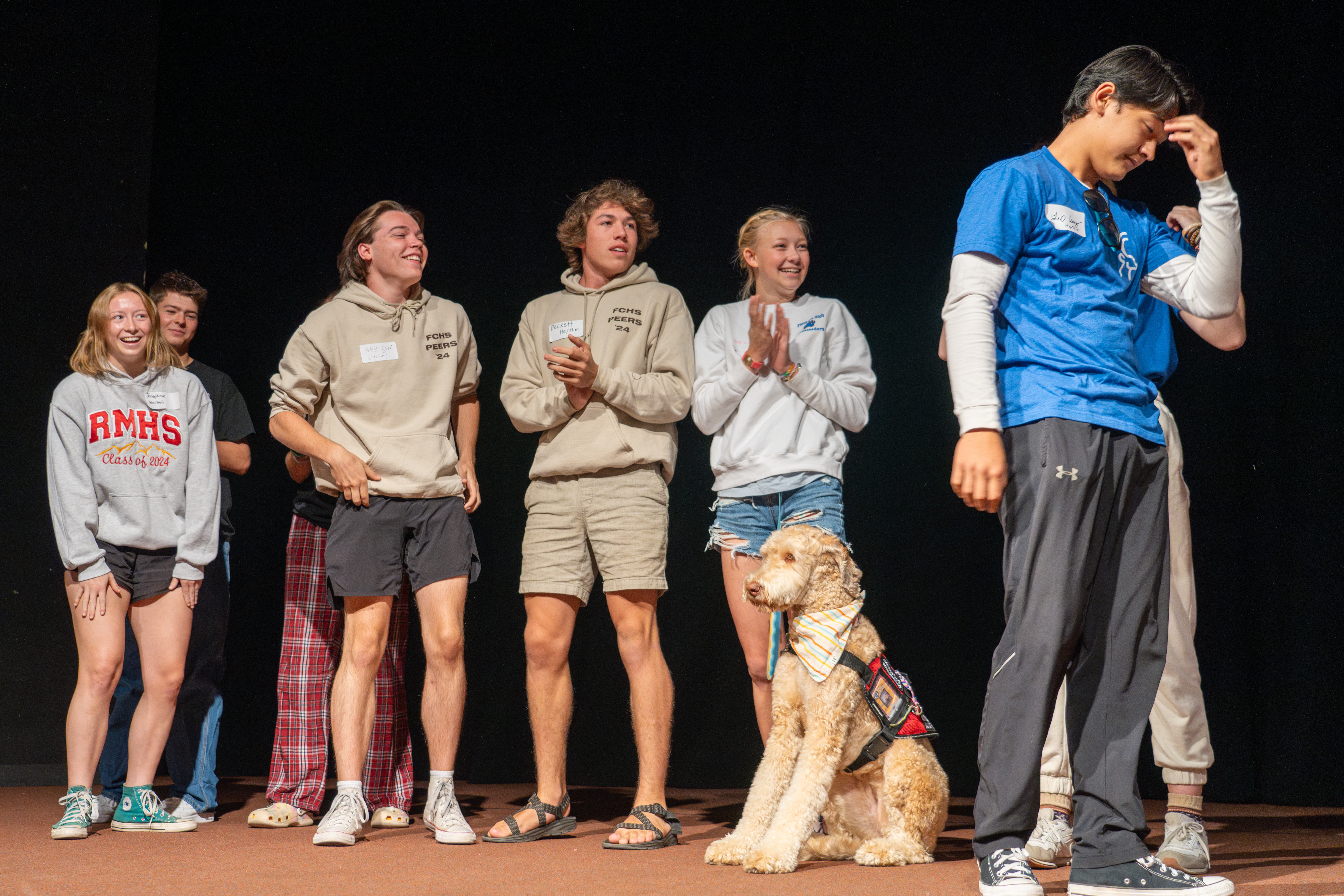
Each year, student ambassadors and peers from high schools districtwide come together for the Peer Summit, a day of training, fellowship and fun.
This year’s main theme was “Stronger Together,” and students worked with one another to prioritize mental health and belonging. They learned from mental health specialists, district staff and most importantly one another. This is an opportunity for students to check in with other peers, learn what makes each other's programs similar and different and take this valuable information with them to share with the rest of their school.
PSD prioritizes mental health and belonging, and we are proud of our students for taking initiative in their schools and community.
Seven schools attended the Peer Summit this year. Hear from a student at each school about what it’s like to be a peer mentor or ambassador, what challenges they see in this role and what to know about students’ mental health needs.
Siri Palusa – Senior, Fort Collins High School
Q: What’s your favorite part about being a peer mentor/ambassador?
A: I feel like my peer program at Fort Collins High School has created such a close community, and being able to help people and actually make an impact on people's lives just makes me feel really good. That's why I joined the Peer Program. Seeing how it has positively affected our school is one of my favorite things. The friendships I made, the community we've built—it's definitely one of my favorite things I've ever done in my school career.
Abigail Collyer – Junior, Fossil Ridge High School
Q: What do you wish more people understood about mental health?
A: It needs to be validated. People will have mental health problems and then they won't get better if we don't start doing something about it now. It's not a scary thing or embarrassing. Instead of ignoring them, we should always talk about them, communicate how it's important and make sure to talk about how it should be discussed. It helps people know that they are validated and that they're needed.
Sara Deshpande – Senior, Poudre Global Academy
Q: Why is talking about mental health important to you?
A: Mental health awareness is so important in our district because it allows us to see that we're not alone, we have resources and we are able to advocate for even more. There are more possibilities and connections, I think that’s the thing that I love about understanding mental health.
Chase Streeter – Senior, Poudre High School
Q: What is the hardest part about being a peer mentor/ambassador?
A: Sometimes we struggle to make those connections, and kids not always being open to opening up with us. That's why we just keep working, and we keep talking to students. That repetition and meeting new people allows us to break down those barriers in that way. We still get to make connections even if people are a little uncertain at first.
Riley Berner – Junior, Rocky Mountain High School
Q: Why is it important to have a program like this for students?
A: Mental health is important because it dictates everything you do. Mental health can kind of dictate how well you're doing in school, it could also dictate how well you're doing in sports. If you're in a good mental state, school will be a lot easier. I think overall if everyone is finding and getting the help that they need, school will be a better environment.
Sienna Moore – Sophomore, Timnath Middle-High School
Q: What do you wish more people understood about mental health?
A: I wish more adults remembered that everyone was a teenager once. There is the stereotype of rebelliousness, that they're just not going to listen, but kids can be really struggling. They just need the help from an older generation to help settle into another world. It's just really important for this age. High schoolers are just trying to get there and it's a lot. I think older generations really need to support and understand that teenagers will get to where everyone else is eventually, but we’re still human beings and need help.
Maddy French – Junior, Wellington Middle-High School
Q: What do you wish more people understood about mental health?
A: I come from a very rural area and for students, I think, especially where I come from, they should know it's not a sign of weakness. You’re not emasculating yourself; you're not doing anything that's considered weak. For parents, it doesn't mean your child is ill. It's just something that happens throughout our life. No one's ever mentally 100%. We just need to be able to deal with that.



